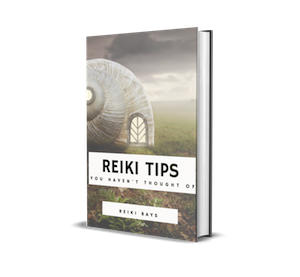Article by Angie Webster
We are experiencing great change and difficulty in the world right now. The updates are nearly constant, making it feel as though the world has sped up to an impossible speed. Yet, in truth, the world has come to a near stop. Everyone has altered their lives in some way. Each of us had to relearn how to manage with this new invisible threat that is only too real and very frightening.
So, how do we keep a healthy mindset during all of this? How do we keep coming back to a centered, grounded, and balanced place within ourselves when nothing is certain, and things change from moment to moment? Is it possible?
Yes. It is possible. At times, each of us will feel fear, sorrow, anger, anxiety, and tension, for many different reasons. You may find that you feel many of these things at once or bounce from one to the other. I do.
It is normal to feel difficult emotions during difficult times. The goal is not to eliminate these emotions or to pretend they aren’t there. We want to figure out how to safely acknowledge them and cope with them, so our minds and bodies feel better. Just doing this is the first step in having a healthier mindset. It is an ongoing practice, so be kind and compassionate with yourself.
Here are some ideas that might help you more easily cope and develop a healthy mindset:
- When you are feeling upset in any way, try to take a breath and admit that feeling to yourself. We often feel a lot of pressure to stay positive and not feel difficult emotions, and may beat ourselves up for feeling upset. But they more readily flow through and release in a healthy way when we admit what we are feeling and accept ourselves despite our difficulties. Admitting how you feel and compassionately telling yourself “It’s OK, I’m OK” also brings greater mental clarity so that you can see the next right step if a resolution is needed. The same is true for physical pain or discomfort.
- Use EFT, also called tapping, to move neurochemicals from difficult emotions out of the nervous system. This simple method only takes a few minutes and quickly reduces the flood of emotions we have in our bodies so that we feel better and think more clearly.
- Get gentle exercise, preferably each day. It’s not only good for our bodies! Exercise has a tremendous effect on our state of mind! It will ease anxiety, help you sleep better, and help improve clarity of mind. Even five minutes of stretching, a few minutes of weed pulling in the garden, or a short walk around the block is very beneficial. Do something you love to do, for even more benefit!
- Listen to music that gives you goosebumps. You know how some music moves you so deeply you can feel it deep in your core and you get chills? The type of music is a little different for everyone, but when music does that, it is healing. Listen to a little every day, if you can.
- Dance! Maybe you already love to dance, and now you have a little more time to do it. If you haven’t done so, try dancing, now that we all have some time on our hands! Alone, with your partner, with your kids, with your pet: it doesn’t matter. You don’t have to be good! The idea is to make your brain feel good and move your body a bit. You can even stay in your chair and dance in small ways that feel good to you, if you aren’t feeling well enough to get up and dance. Or close your eyes and mentally dance! Dance releases feel good hormones in our bodies, improving our state of mind. And, it’s also exercise!
- Use a daily stress management practice, such as meditation, self-healing, or deep breathing. Stress management is important for calming the central nervous system and allowing the body and mind to periodically return to a state of balance and centeredness. The kind of practice you choose isn’t as important as having a practice and maintaining it.

- Get fresh air. Even though many of us around the world are in isolation right now, if you are able to do so, get some fresh air each day. Open a window or at least open the blinds. If you are able to step outside onto a balcony or porch for a few minutes, then do that. And if a short walk into your yard, garden, or neighborhood is possible, even better. Do what you can. And if none of these are possible, try listening to nature sounds on your phone for a few minutes a day. Nature is so soothing.
- Have some intentional connection time with loved ones. Even with social distancing, we can practice connection. Maybe now, more than ever, we feel connected with all of our fellow humans. And especially with our loved ones. Most of us have some extra time with loved ones while we wait things out at home. I understand that can become tedious and boring at times, and nerves can occasionally wear thin. We are all suddenly adjusting to something very new, while in the midst of uncertainty so it is normal and expected. Having short periods of intentional connection may help each of you feel less anxious and establish a new routine for how to be together through all of this.
- Also have intentional time alone. With all the forced togetherness, we will quickly find that we have overloaded our social battery meter if we don’t take intentional time alone to unwind and rest. This is especially true for anyone who is an empath or highly sensitive person. All of us need time to ourselves, and that is especially true for empaths and HSPs. Work out a bit of time in your day to have a little space, even if just for 15 minutes. Take a shower or bath. Take a walk or sit outside. Read a book or watch a TV show alone. But let your loved ones know you need this time and that you know they need their own time too. Respect your need for this, and also respect the needs of others in your household for time alone.
- Develop a compassion practice. There is no better time than now to develop a compassion practice. This is the practice of noticing that others have the same wants, needs, desires, and essential life experiences as you do. For example, each of us was once a little baby, innocent and new to the world. Each of us will experience sickness. Each of us will be wrong at times. Each of us have many things about which we are ignorant. Each of us will die someday. Each of us will experience loss. Each of us wants to be well, safe, and happy. Each of us wants our loved ones to be well, safe, and happy. These things are true for you, for me, and for every person—even the ones that you don’t like. Even for the person who you lose your temper with or get impatient with. Taking some time to practice imagining other people in each of these situations with an open heart can help you to develop greater compassion. This helps you to feel calmer and more at peace, even during difficulty. You can make this practice a meditation, a thought exercise, guided imagery, or prayer.
I am holding each of you in my heart, now, and through all the difficult times the world may face. I believe that if each of us does what we can with every difficult situation, we can find some good in everything. Have hope and gratitude for every small thing, every day! Many Blessings!
Free eBook download: We’ve created an eBook with our best articles on this topic, and offer it for free to all our newsletter subscribers.


Angie Webster
Angie Webster is a Reiki Master, Teacher, and Author. Angie’s primary focus is animal Reiki, which she adores. She teaches online Reiki Level One, Animal Reiki, flower essences, and various personal growth courses.
Angie is the author of “Animal Reiki: How it Heals, Teaches & Reconnects Us with Nature” and “Reiki from A to Z”. You can follow her at: https://angie-webster-school-of-reiki.teachable.com






Leave a Reply